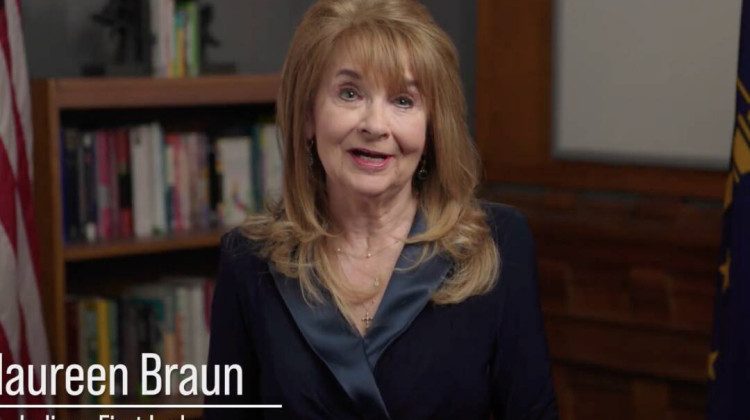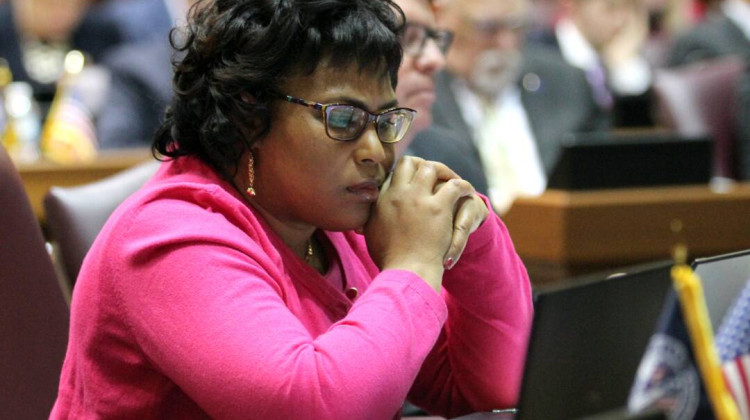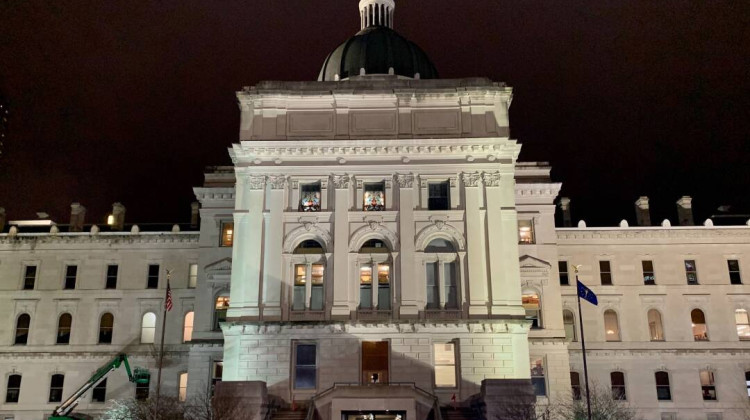
Many of these claims are addressed in class action lawsuits, which Indiana Community Action Poverty Institute's Erin Macey said provides an opportunity to "hold institutions accountable for small harms across many people."
Lauren Chapman/IPB NewsA House committee on Thursday passed a bill that shortens the period of time Hoosiers have to dispute charges and other issues with their banks.
Senate Bill 188 would lower the state’s statute of limitations from six years to two years.
Some advocates and lawmakers are concerned these changes would hinder consumer protections.
Rep. Vernon Smith (D-Gary) said a shorter period gives Hoosiers less opportunity to dispute unfair charges with banks.
“The mistakes that the banking industry has made, which has been negative towards the population and consumers, that window is being closed, and made narrow with this provision,” he said.
Erin Macey is the director of the Indiana Community Action Poverty Institute. She said this lowering of the statute of limitations could harm consumers with overdraft fees and create other problems with checking and savings accounts.
“Why do Hoosiers who have been harmed deserve less time and less damages than people in the next state over?” she said. “Banking disputes should be decided on their merits, not a legal technicality.”
She said these changes negatively impact all customers, but particularly those from modest means.
“A lot of consumers I've talked to about these fees feel they're unjust, but they also feel powerless to stop them,” Macey said. “And it's impractical to expect that they will individually litigate these.”
Join the conversation and sign up for the Indiana Two-Way. Text "Indiana" to 765-275-1120. Your comments and questions in response to our weekly text help us find the answers you need on statewide issues, including our project Civically, Indiana and our 2024 legislative bill tracker.
Many of these claims are addressed in class action lawsuits, which Macey said provides an opportunity to “hold institutions accountable for small harms across many people.”
Sen. Scott Baldwin (R-Noblesville) authored the bill. He said many financial institutions have been subject to class action lawsuits over deposit accounts that cost them money and significant time away from other services.
“None of these cases have been decided on their merits,” he said. “Instead, almost all have been settled to avoid the significant expense of legislation.”
Baldwin said this bill is intended to “normalize” this shortened period for these actions.
Brett Ashton is a local attorney. He said it can sometimes be impossible for financial institutions to see a transaction that may incur an overdraft fee.
Ashton offered an example: Someone spends $90 on a dinner with $100 in their account, but then adds a tip bringing the $90 to more than the available account balance.
He said if banks authorize the initial $90 transaction, it could be unfair to expect the banks to be responsible for these overdraft fees if the consumer knew how much money they had in their account.
“These financial institutions have been sued for transactions they had no way of knowing were going to incur an overdraft until they were presented,” Ashton said. “They had no way of identifying. And even if they wanted to try to figure out how to stop it, they would have to go back through literally every single transaction. So that's–that's the fee practice we're talking about. And I thought it'd be helpful just to help folks understand this is not a case of banks and credit unions trying to steal from consumers.”
Rep. Kyle Miller (D-Fort Wayne) voted in favor of the bill, but said he’s hesitant as he is sympathetic to both the consumers and financial institutions in this bill.
“But I also have talked to multiple financial institutions in my district and beyond, that are going through these suits,” he said. “So either these financial institutions are not sticking to their contract on some mass scale, or we do have lawyers and firms that are targeting these financial institutions.”
The bill passed 9-4, and now heads to the House floor for consideration.
Violet is our daily news reporter. Contact her at vcomberwilen@wfyi.org or follow her on Twitter at @ComberWilen.
 DONATE
DONATE








 Support WFYI. We can't do it without you.
Support WFYI. We can't do it without you.